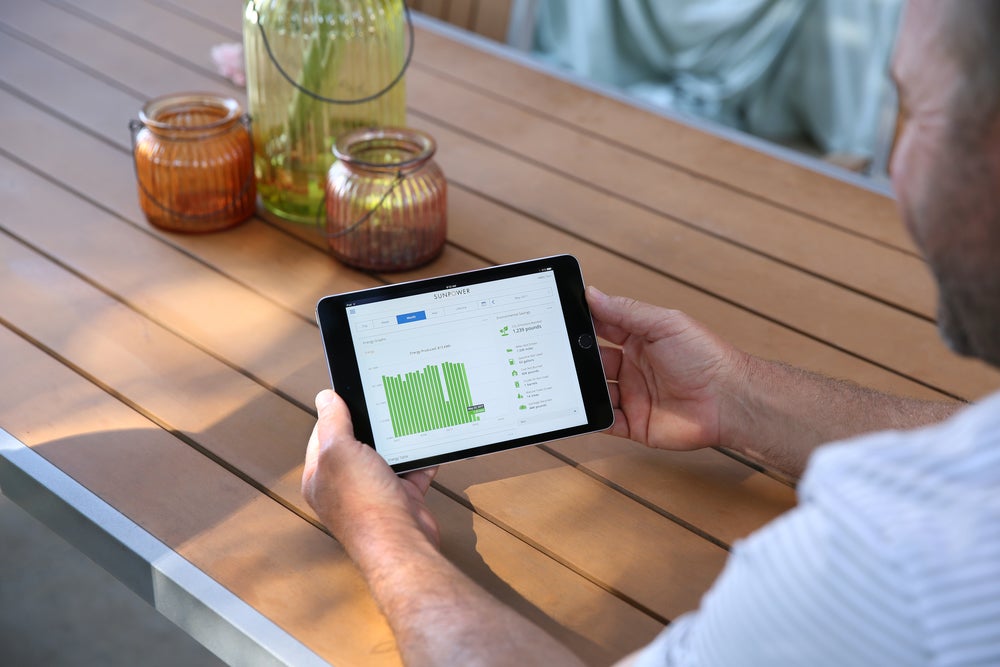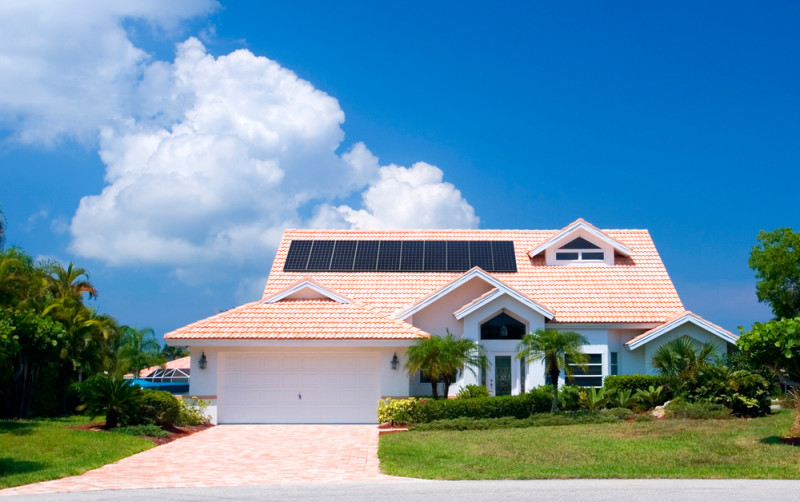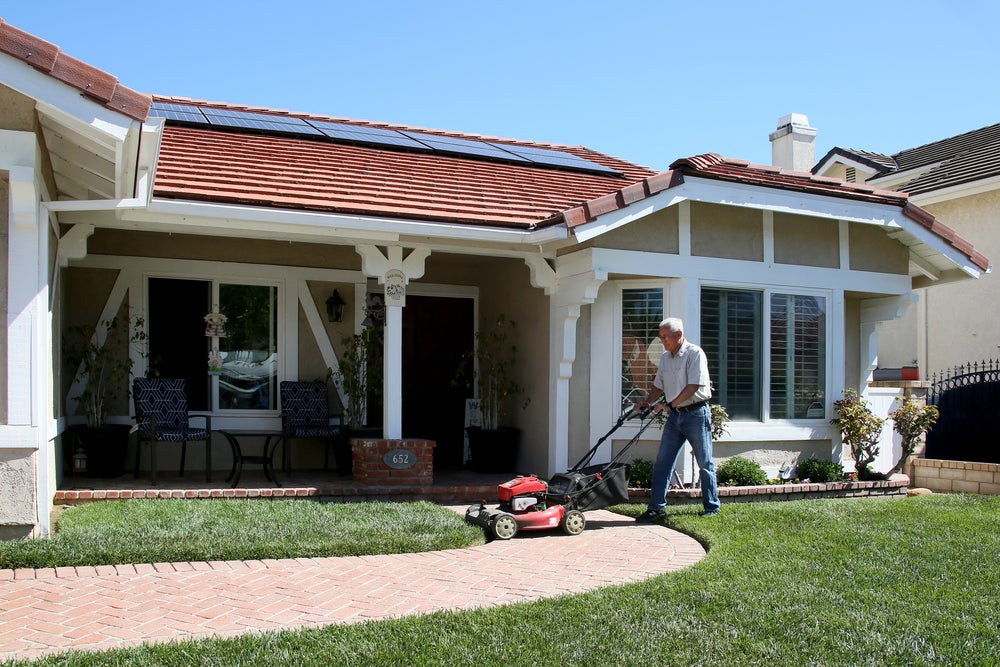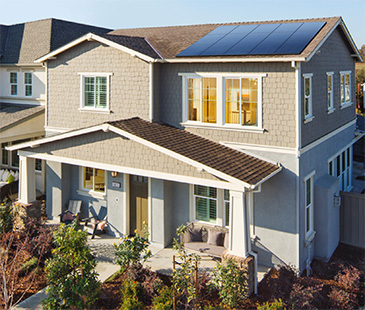The Pros and Cons of Solar Energy
When it comes to solar energy pros and cons, we've heard it all: it's for hippies, it's too expensive or it doesn't work. Yet more solar energy systems are being installed on homes than ever. Here, we explain some key facts about the pros and cons of solar energy and answer the main question for homeowners, “are solar panels worth it”?
Solar panels are more efficient, affordable, and environmentally friendly than they’ve ever been, and the 30% federal tax credit makes solar an even more attractive investment for homeowners. However, like any investment, going solar won’t make sense for every homeowner depending on their geographic location, roof orientation, and current electricity usage. A free consultation is the quickest way to see if solar is right for you.
In most situations and areas in the U.S., solar panels are worth the cost of installation and maintenance, providing a good return on investment and benefits to the environment.

Solar Pros
Solar panels are a proven technology invented in 1954.
Modern residential solar systems work in different weather and climates.
Home solar is more affordable than ever.
Net metering may allow homeowners to profit on excess energy produced.
Quality solar panels can last 40 years or more (better return on investment).
Solar panels can increase a home’s resale value.
Home solar installations have been widely adopted across the U.S.
Solar Cons
Note: Many of these solar cons are applicable to older or less advanced home solar technologies and are no longer an issue.
Standard home solar does not “work” at night
Home solar panels are not attractive
DIY solar installation is difficult (if not impossible) for most homeowners
Not every roof configuration is ideal for maximum solar power generation
Solar manufacturing is not good for the environment
Many cheap solar panels are not of a high-quality and will not last
Pros of Solar Energy
Solar is a proven technology.
The history of photovoltaic (PV) solar power began with scientific experimentation during the late 1800s. The first PV silicon cell capable of converting the sun's energy into power that could run electrical equipment was introduced in 1954, and by 1983, worldwide PV production exceeded 21 megawatts. At the time of this writing, there were 47.1 gigawatts of total solar capacity installed in the U.S. nationwide, so it's safe to say solar is a proven technology and that its adoption as a source of clean energy will continue.
Solar works in many climates.
Many people believe that solar won't work in colder climates. That's not true. Solar panels are actually more efficient in colder temperatures because excessive heat can reduce the voltage they produce. While more hours of direct sun exposure will indeed help a solar system generate more electricity, modern panels are quite efficient and can still generate energy in low light situations. Someone living in Seattle, for example, may just need a somewhat larger solar system to get the same results as someone in Southern California. Bottom line, solar works anywhere there is daylight. (For more, read How Solar Energy Works).

Solar is more affordable than ever.
The cost to install solar has dropped by more than 40% over the last decade. An average-sized residential system has dropped from a pre-incentive price of $40,000 in 2010. Looking at national average pricing data, we found that the cost of owning a 5 kW solar system in 2023 ranges from $13,250 to $21,000. In many markets worldwide, solar power is less expensive than conventional energy. There are a variety of financial incentives available, such as tax rebates and state policies, that help make going solar affordable for more families. There are also a variety of solar financing options, from no-money-down leasing to home improvement loans that make solar more affordable.*For qualified customers in select locations where leases are available. In many places you can buy, lease or finance a solar power system. If you purchase a solar power system in the United States, you may be eligible for a 30% federal income tax credit and other local incentives.*Tax credits and local incentives vary and are subject to change. SunPower does not warrant, guarantee or otherwise advise its partners or customers about specific tax outcomes. Consult your tax advisor regarding the solar tax credit and how it applies to your specific circumstances. Please visit the dsireusa.org website for detailed solar policy information. (Here are more tips on How to Get More Value Out of Your Solar Investment).
Solar energy benefits the whole electricity grid.
Around the world, excess solar energy can be used by the conventional utility grid, and, depending on local policies, the solar owner is often compensated for that contribution via, for example, feed-in tariffs in some international markets such as Japan and parts of Europe. In most U.S. states, there are net metering policies. Net metering is a billing strategy that essentially pays solar users for their surplus electricity by giving them credit against their use of electricity from the grid at night. (For more, read about net metering).
Solar panels have a long lifespan.
Solar panels are quite durable and can withstand even harsh weather conditions, including the impact of hail up to one inch in diameter.
And according to durability tests, only 1-in-20,000 SunPower panels are ever returned.*"Fraunhofer PV Durability Initiative for Solar Modules: Part 2". Photovoltaics International, 2014
Solar panels can increase home values.
One of the advantages of solar energy is that the addition of PV panels generally increases home values. In 2019, an online real estate marketplace found that U.S. homes with solar panels typically sell for 4.1% more than comparable homes.*Zillow, April 2019, https://www.zillow.com/research/solar-panels-house-sell-more-23798/ A study by the U.S. Department of Energy's Lawrence Berkeley Laboratory analyzed about 22,000 home sales, almost 4,000 of which use PV solar systems in eight states. It found that a typical PV system added about $15,000 in value.*Source: Hoen, B., Adomatis, S., Jackson, T., Graff-Zivin, J., Thayer, M., Klise, G., & Wiser, R. (2015). Selling Into the sun: Price Premium Analysis of a Multi-State Dataset of Solar Homes. Based on an analysis of homes with and without solar systems in 8 states from 1999 through 2013. Actual impact on home values will vary.
Solar is a nonpartisan, widely accepted, and practical alternative energy source.
Solar is for everyone. It is being embraced by people across the entire sociopolitical spectrum. Homeowners covering all demographics continue to install solar energy systems. Mainstream banks are financing solar. Progressive solar policies have been driven at the state level by Republicans and Democrats alike. The environmental benefits of solar power are undeniable, but it's being embraced widely because it saves solar-owners money.
Cons of Solar Energy
Solar doesn't work at night.
Some people interested in solar might wonder if, by going solar, they can live completely off the grid. This isn't realistic in most applications of solar technology. While many solar companies, including SunPower, offer home battery storage solutions, it’s only recently that home batteries have become easily accessible to most homeowners. Solar energy is mostly used in real time, with any excess delivered back to the conventional utility grid or a battery. Solar households must rely on utility grids or battery storage for power at night and in other situations when sunlight is limited.
Solar panels aren’t attractive.
This was certainly true of the now-obsolete panels with bulky silver frames that sat high off the roof. But today, solar panels are sleek with far-more-minimalist designs that sit flush with roof surfaces, integrate with various roof-types, or even replace an existing root altogether. Different color options help homeowners design systems that match the aesthetics of their homes, while still delivering the same clean, powerful energy.
In addition, homeowners with ample roof space or multiple sections of roof with sufficient exposure to sunlight may be able to design and install systems that aren’t even seen from the street.
It’s also important to remember that familiarity has a strong initial impact the on our perception of “attractiveness.” Most people don’t think garage doors are beautiful, but we’re so used to seeing them that they largely go unnoticed when we’re admiring the beaty of a home. The same is occurring with solar. With more and more solar panels appearing on homes all over the U.S., our perceptions of how they impact the overall attractiveness of home are changing as well.
SunPower Manufactures Better-Looking Home Solar Panels Today’s solar panels are sleek, compact and fit snugly against the roof thanks to innovations like SunPower Equinox home solar systems and InvisiMount racking, with their minimalist design, and elimination of unnecessary hardware and utility boxes on exterior walls. The inverter box is hidden behind each panel, which looks more attractive AND maximizes the amount of power your system can generate. SunPower’s proprietary InvisiMount frame is nearly invisible, so the panels appear to float above the roof. Buyers also have the choice of SunPower Signature solid black solar panels, which have a distinctively elegant appearance.

You can't install a home solar system yourself.
For advanced DIYers installing a home solar system is possible, but for most homeowners it requires a professional solar installer. While those DIYers might think that not being able to install solar themselves is a disadvantage, for most homeowners getting the experts to handle the planning and technology to go solar turns the potentially complex solar installation into a very simple process. (See this Five-Step Guide.)
There’s also the all-important question of warranty coverage. Most solar panel warranties won’t cover defects caused by improper third-party installation. Further, even if a DIY installation isn’t the cause of a defect, homeowners may incur extra warranty fees for the uninstallation of defective panels and reinstallation of replacement panels not originally installed by a certified-installation contractor.
The SunPower Dealer Network SunPower dealers know local permitting rules, so they can make that solar installation process go as smoothly as possible, and of course someone with electrical experience needs to handle the wiring. You can get a free consultation to find out what it will take to switch your home to solar energy. Professional solar installers have expertise designing solar systems for homes, ensuring the system captures the maximum amount of sunlight available and saves you the most money on your electric bill.
My roof isn't right for solar.
It's true that solar won't work on every building, depending on shading and roof orientation. To make the most out of your solar system, it helps to have plenty of roof space that gets sunshine.
SunPower Professionals Adapt Solar Installations to Roof Configurations Solar companies are used to working with different types and styles of roofs and offer free consultations to plan how a solar system will best fit on your property. It's worth noting that because SunPower solar panels are the most efficient on the market you’ll need fewer of them on your roof. Meaning, you can generate more energy in less space. That extra efficiency also means SunPower panels are better at generating more energy in low-light situations, such as shading, so if your roof isn't fully in the sunlight, your system will still produce electricity. And, because SunPower inverters are located behind each panel, if one panel is in the shade, the others will be able to pick up the slack.
Solar hurts the environment.
Solar panels are a manufactured product, and, as with any building processes, there is an environmental impact, from the chemicals used to make the panels to the transportation and beyond.
Solar Manufacturing Environmental Facts Solar is one of the least-polluting forms of energy generation available and SunPower builds the most environmentally friendly solar panels possible. SunPower raises the bar for environmental and social sustainability through their "Beneficial by Design" philosophy that aims to be a regenerative force on the environment and society. From SunPower DC panels that have achieved Cradle to Cradle Certified*Cradle to Cradle Certified is a certification mark licensed by the Cradle to Cradle Products Innovation Institute Bronze recognition, to creating the industry’s first PV recycling program, SunPower is proud to lead the industry in environmental stewardship.
Not all solar panels are high quality.
It's true there are a wide variety of panels on the market with varying levels of efficiency, durability, reliability, output, and design. Still, homeowners have a wealth of information available to research solar manufacturers and products before selecting panels for their home. Proper consideration of how each of these factors will affect production will go a long way in maximizing long-tern savings and enjoyment of the system. As with most products on the market, it's worthwhile to invest in high-quality solar panels. After all, what other technology around the home can you expect to still be working three or four decades from now?
SunPower Quality Warranty We're so confident in our panel quality that we offer the most comprehensive warranty in the industry. Our 25-year Power and Product Warranty for home use covers all the panels and everything else on the roof, and even provides coverage for the roof itself where the system is installed.
Are solar panels worth it for your home?
Every situation is different, depending on location, home, local solar incentives, availability of experienced solar installers, and home energy usage. But overall, home solar systems provide a major financial benefit to homeowners through energy cost savings. Plus, the ecological benefits to clean, renewable energy helps reduce carbon emissions and lower our overall impact on climate change. Anything that saves homeowners money and helps us save the world for future generations in the process is worth the research and investment.
Ready to learn more about how you can power your home with clean, renewable solar energy?
SunPower is changing the way our world is powered by making solar and storage more accessible to everyone. With nearly 40 years of dedicated solar experience, we're the top-rated U.S. solar company with over 15,000 five-star reviews.*Based on public solar providers in the U.S. Includes average of BBB, Yelp, ConsumerAffairs, BestCompany, Google, Solar Reviews and Energy Sage review scores as of 7/1/23. Based on reviews from BBB, Yelp, ConsumerAffairs, BestCompany, Google, Solar Reviews and EnergySage review scores as of 10/22/23. If you're considering installing solar panels, energy storage, or EV charging at your home, make sure you talk to SunPower.
Schedule your free, no-obligation consultation with SunPower by calling 1-800-SUNPOWER. Or click the Get Started button and we'll get in touch with you! Our team of Solar Advisors is here to help make your transition to a sustainable lifestyle.

